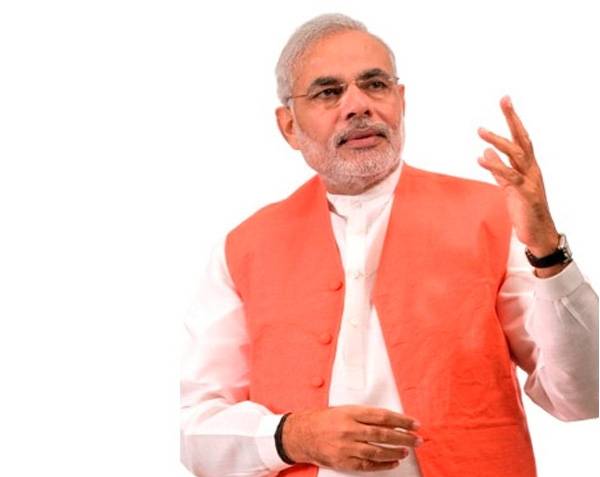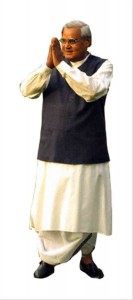
 The emotional outbursts following the canceled meeting between the Indian and Pakistani national security advisers have given way to a more rational assessment of what went wrong.
The emotional outbursts following the canceled meeting between the Indian and Pakistani national security advisers have given way to a more rational assessment of what went wrong.It has probably dawned on the hawks in Delhi that they had associated unrealistic expectations with the Ufa declaration. Some Indian analysts, such as Siddharth Varadarajan and Venod Sharma, agree that while India pulled a coup in Russia by making Pakistan agree to discuss terrorism “only”, it was grossly naive on their part to assume that Islamabad would skip the issue altogether. Rather than being restricted to a one-point agenda, the Ufa declaration should have been a package – the way such agreements have been in the past, they say.
Some were apprehensive much before the talks were scheduled. The Indian establishment “erred in plugging it as a Pakistani capitulation of sorts by saying things like Kashmir wasn’t mentioned”, Shekhar Gupta wrote in India Today on July 16. He went on to recall what leading BJP leaders have been saying about dealing with Pakistan. “Will it be ten heads for a head, as Sushma Swaraj said once, or kill five for one, as Rajnath Singh says to his BSF troops now? Or will it be to bring Pakistan to the negotiating table? That’s a call Narendra Modi has to make. And if his call is the latter, he has to press on, ignoring tactical distractions and keeping his political capital for the big decision.”
India and Pakistan ignored their sociopolitical conditions in the Ufa declaration
Gupta cited President Barack Obama’s deals with Iran and Cuba as examples of big decisions. “Obama chose his big objectives early enough: settling the nuclear disputes with Iran, normalising relations with Cuba, and on the domestic front, Obama-care. Once this course was set, he started pulling out of existing distractions, Iraq and Afghanistan included, stayed generally out of Ukraine, whatever the provocation, and left the North Koreans in their not-so-splendid, self-imposed isolation.”
It is not surprising that a lot of analysis that follows the cancellation of the highly anticipated meeting between the national security advisers of the two countries is similar to what writers like Shekhar Gupta had said weeks ago. And it has also become clear that both India and Pakistan ignored their sociopolitical conditions in the Ufa declaration.
It is not clear if the Narendra Modi government wants to pick up the thread from where it snapped, and whether its brinkmanship and bullying will give way to a more realistic approach. The Indian posturing may not augur well for peace in the region.
In another article in India Today, on the 50th anniversary of the 1965 war, Shekhar Gupta draws an analogy between the current tensions between India and Pakistan with those that arose in 2001, after a terrorist attack on the Indian Parliament. He recalls the cool wisdom and statesmanly demeanour of former prime minister Atal Bihari Vajpayee. “When a war-like situation was developing in the winter of 2001-02, Vajpyee had asked his furious generals a question: we can go to war for sure, but when the history of this war is written, what will this war be called? What is our objective? Will it merely be called a war of anger?”
India can play a critical role in reconciliation in Afghanistan
Modi can perhaps look back at history and try to create a balance between his desire to “teach Pakistan a lesson” and Vajpayee’s sagacious way of dealing with Pakistan. Vajpayee and his foreign minister Jaswant Singh endured such political traumas as the attack on the Indian Parliament, the Kargil conflict, and the Kandahar hijacking, but kept their cool.
Talking about Indian foreign policy dilemmas in general, Jaswant Singh concluded in his book India at Risk that “there is a direct interrelationship, a consequence, on account of which the principal purpose and objectives of our foreign policy have been trapped between four lines: the Durand Line, the McMahon Line, the Line of Control and the Line of Actual Control… As long as we remain so bound, for that long will India remain immobilized in thought – physically impaired in its responses – and our quest for lasting national security chained, hence unattained, and of course, economically greatly strained.”
 He encapsulated a reality that has existed for nearly seven decades. India must deal with this reality – ie the Kashmir issue in an increasingly interconnected world – the Vajpayee way, riding a bus to Pakistan for peace, and not the Modi way, with aggressive posturing and belligerence.
He encapsulated a reality that has existed for nearly seven decades. India must deal with this reality – ie the Kashmir issue in an increasingly interconnected world – the Vajpayee way, riding a bus to Pakistan for peace, and not the Modi way, with aggressive posturing and belligerence.Now that international players such as the United States and China are keen on the resumption of dialogue between India and Pakistan as well as a reconciliation in Afghanistan, circumstances demand a more calibrated approach from New Delhi. The Modi government carries a huge responsibility – it has to revive dialogue with Pakistan based in the dictates of realpolitik, and it has to use its clout in Kabul’s power corridors to smoothen the way forward for President Ashraf Ghani, whose survival hinges on a dialogue with Taliban via Pakistan.
Ghani’s detractors had forced him to send a delegation to Pakistan with the message of calling off the talks with Taliban, but finally good sense prevailed and the Afghans went back without making such a declaration. Efforts are underway for a resumption of the process, but those in Islamabad and Beijing must also consider the extremely critical role India can play in reconciliation in Afghanistan, by engaging with Ghani’s opponents in the NDS and other organs of the Afghan establishment.
The Modi camp must realize that it cannot expect to live in peace while the neighbourhood remains embroiled in conflict. Pakistan’s stability depends on a stable Afghanistan. And the same is true for stability in India and the region. Geographical distance insulated the US from a spillover of the conflicts it was involved in, but south Asian countries do not have that advantage. There is no way around talking out the differences to lower tensions.
The writer heads the independent Centre for Research and Security Studies, Islamabad, and is the author of Pakistan: Pivot of Hizbu Tahrir’s Global Caliphate
Email: Imtiaz@crss.pk

